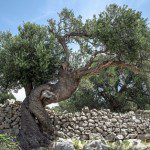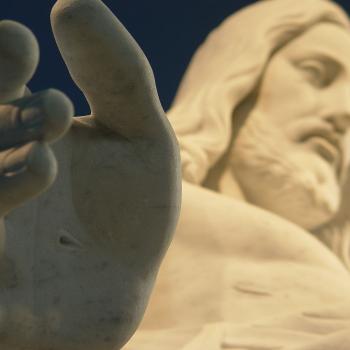An oft debated question among Chinese Christians is this, “Can Christians eat blood?”

For some, the answer is a straightforward “no” based on Old Testament prohibitions and on Acts 15:20, 28; 21:25, which record the Jerusalem church’s letter to the believing Gentiles. The Acts verses are not so clear cut. The letter seems to blend cultural and absolute prohibitions. After all, Paul in 1 Cor 8–10, Rom 14, for example, clearly says that eating food sacrificed to idols is not sin.
How do we help fellow Christians understand the Bible’s teaching, to discern what is “cultural” from what is “absolute”?
Rather than rehash debates over Acts 15, we will consider the OT’s rational about why Jews were forbidden from eating blood. The command’s rational, not the it mere existence, will help us grasp the broader issues.
God eats blood and fat
One of many OT passages that forbid eating blood is Lev 17:10–12,
If any one of the house of Israel or of the strangers who sojourn among them eats any blood, I will set my face against that person who eats blood and will cut him off from among his people. For the life of the flesh is in the blood, and I have given it for you on the altar to make atonement for your souls, for it is the blood that makes atonement by the life. Therefore I have said to the people of Israel, No person among you shall eat blood, neither shall any stranger who sojourns among you eat blood.
For various reasons, many Christians have so emphasized “blood” that they overlook a significant observation: what the OT says about blood applies to an animal’s fat (chelev) as well.
The significance of fat burned at sacrifice parallels the significance given to sacrificial blood. Lev 17:11 prohibition may parallel the similar prohibition on eating the fat of oxen, sheep and goats. That portion is always offered to the Lord.
The Bible consistently links the application of blood and burning of fat. They are gifts to God. The fat is considered food symbolically gifted to God (e.g. Lev 1:9; 3:11, 16). In effect, sacrifices are routinely presented as “meals” offered to God.
Have you ever asked yourself, “What is the only thing common to every sacrifice?” It’s not blood (cf. grain offering).
For each offering, worshippers, burn the sacrificial gift on the altar. As a result, the smoke produces a “pleasing aroma.” Compare following passages:
- Burnt Offering (Lev 1:9, 13, 17)
- Grain Offering (Lev 2:2, 12; 6:15, 21)
- Peace Offering (Lev 3:5, 11, 16)
- Sin Offering (Lev 4:19–20, 26, 31, 35)
- Guilt Offering (Lev 7:2–7; “burned” but no mention of “pleasing aroma”)
For further on this, see Christian Eberhart’s important article, “A Neglected Feature of Sacrifice in the Hebrew Bible: Remarks on the Burning Rite on the Altar.”

Eberhart notes,
…it is worth mentioning that the formula about atonement and forgiveness (Lev 4:20b, 26b, 31b, 35b) is repeated not after each description of the blood rite, but rather after the description of how each offering is to be burned on the altar (Lev 4:19–20a, 26a, 31a, 35a). The conjunction of the atonement formula with each description of the burning rite underlines the importance of this ritual step for the sin offering.
Even outside Leviticus, the Bible presents burning as the climax of the sacrifice (e.g., 1 Sam 2:28; Deut 33:10).
Both blood and fat are forbidden
Since the fat and blood are gifts for God alone (not even shared with priests), people are forbidden from eating them. For example, in Lev 3:16–17; 7:22–27, people are forbidden from eating an animal’s fat. The command refers to a specific type of fat, which is mentioned in Lev 3:9–10:
he shall remove the whole fat tail, cut off close to the backbone, and the fat that covers the entrails and all the fat that is on the entrails and the two kidneys with the fat that is on them at the loins and the long lobe of the liver that he shall remove with the kidneys. (cf. Lev 3:3–4, 9–10, 14–15)
Sometimes, a verse only prohibits eating the fat (Lev 7:23), only the blood (Lev 17:12), and at other times both (Lev 3:17).
This explains God’s anger in Ezek 44:6b–7,
Thus says the Lord GOD: O house of Israel, enough of all your abominations, in admitting foreigners, uncircumcised in heart and flesh, to be in my sanctuary, profaning my temple, when you offer to me my food, the fat and the blood. You have broken my covenant, in addition to all your abominations.
In short, the OT prohibition on eating blood was due to the fact God “ate” the blood and fat (figuratively speaking).
Not sacrifice. No Problem.
What about today? We do not live under the Mosaic covenant, by which sacrifices brought people to God. Jesus’ death and resurrection typify the OT’s blood and fragrant aroma that ascends to God.
Given this new state of affairs, neither blood nor fat are not offered to God as symbolic food. Therefore, the basis for the prohibition is gone. We may eat blood and the fat (chelev), if you so choose.
One last note–– for those who insist on our not being able to eat blood, in order to be consistent, you’ll need to make sure you are not eating of the fat (chelev) prohibited by the OT as well. Have fun with that.
Note:
Christian Eberhart, “A Neglected Feature of Sacrifice in the Hebrew Bible: Remarks on the Burning Rite on the Altar.” Harvard Theological Review, 97:4 (2004): 485–93.
















